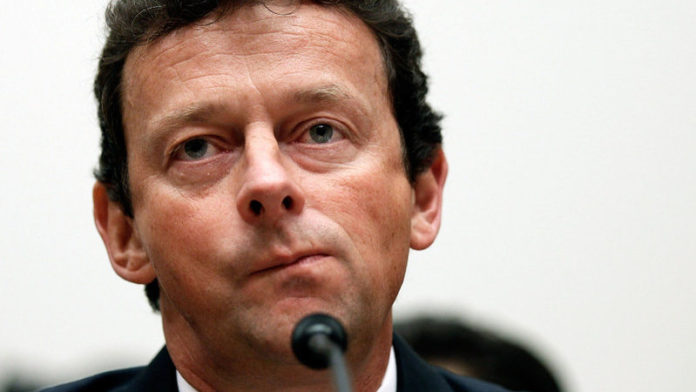
RECOMMENDATIONS by shareholder advisory Pirc to consider voting Glencore chairman, Tony Hayward, off the board went unheeded today.
Just less than 4% of shareholders voting at the Swiss-headquartered group’s annual general meeting (AGM), held in two parts owing to the COVID-19 pandemic, felt the former head of BP ought to be removed.
Pirc was reported to have asked Glencore’s shareholders to consider Hayward’s track-record in implementing environmental protection standards – a reference to the Deepwater Horizon accident in 2010 in which a fire and oil leak at BP’s Gulf of Mexico installation resulted in the death of 11 employees and significant environmental damage.
Some 96.04% of shareholders voted for Hayward’s re-election, chairman since 2011, and that of another under-fire non-executive director at Glencore, Peter Coates.
Coates had overseen Glencore’s health, safety, environment and community committee at a time when mining related fatalities had increased at the company, according to a report in the Financial Times which cited Pirc’s views.
The Australasian Centre for Corporate Responsibility (ACCR), a shareholder advocacy organisation, also questioned Coates’ track-record, but 96.31 of shareholders who voted were in favour of the resolution re-appointing him.
In the first part of the AGM on May 28, in which shareholders were permitted to submit questions, Hayward defended Glencore’s greenhouse gas emissions targets saying that they were “… more robust than the so-called targets that other people have out there”.
Hayward will continue representing Glencore in a Department of Justice investigation into certain trading activities conducted by the group since 2007 in Nigeria, Venezuela and the Democratic Republic of Congo.
Pressure on miners has mounted after Norway’s $1Tr wealth fund in May decided to sell its Glencore shares because it produces coal.
Activist charity ShareAction added its voice to Glencore’s critics, saying the firm should align its policy with the Paris climate goals by setting targets for Scope 3 emissions, which are generated when its products are used.
GLASENBERG REAPPOINTED
The reappointment of Ivan Glasenberg, CEO of Glencore, at the AGM might be the last, however. Glasenberg has signalled his 18-years at the company might be drawing to an end once he had overseen the installation of a fourth generation of new management.
“There are not many of the old guys left,” he said in a December investor update. “When new management is in place, which will be as early as possible … I will move aside.” He added, however, that one of the crop of new managers would “have to be ready” first. “It could be quite soon.”
Whoever takes up the role will have to get used to the volley of criticism delivered by RAID, a UK-based human rights activist which described Glencore’s Sustainability Report published today as lacking credibility.
Anneke van Woudenberg, executive director of RAID, said Glencore’s narrow definition of human rights abuses left many other genuine incidents unreported.
“Glencore’s narrow definition of a serious human rights incident is not only wrong in law, but permits the company to report only a fraction of the human rights abuses that occur as part of its operations,” she said.











